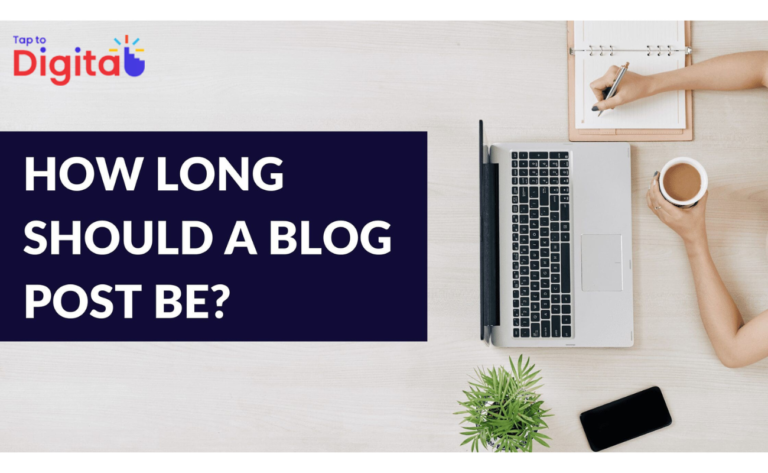In the vast ocean of online content, where attention spans are shorter than ever and competition is fierce, one question looms large for bloggers: best length of blog post? It’s a dilemma that can make or break your blog’s visibility in search engines. Does longer mean better? Or does concise win the day? In this ultimate guide, we’ll dive deep into the science behind ideal blog post length for SEO success. Whether you’re a seasoned writer looking to refine your strategy or a newbie eager to make an impact, we’ll explore how to strike that perfect balance between depth and brevity. Get ready to unlock the secrets that will not only boost your rankings but also keep readers coming back for more!
Introduction: Importance Of blog Post Length In SEO
When it comes to blogging, one question often looms large: how long should your posts be? In the vast digital landscape, where attention spans are fleeting and competition is fierce, the ideal length for blog post can make or break your content strategy. Striking the right balance between information and engagement is crucial not just for appealing to readers but also for climbing those elusive search engine rankings.
As you dive into this ultimate guide, you’ll discover why blog post length matters in SEO. We’ll explore what constitutes an ideal blog post length, analyze factors that influence word count decisions based on your audience and goals, and delve into real-life examples showcasing successful blogs of varying lengths. Whether you’re crafting a brief yet impactful piece or diving deep with an extensive article, understanding how to optimize each type will set you up for success.
Join us as we unravel the secrets behind finding that perfect word count—because when it comes to blogging, sometimes less really is more, but other times more truly does mean better!

What Is The Ideal Blog Post Length For SEO?
The ideal length for a blog post can vary, but many experts suggest aiming for 1,500 to 2,500 words. This range tends to strike a balance between thoroughness and readability.
Longer posts allow you to dive deeper into topics. They provide more value by covering various angles, answering questions, and offering insights that shorter pieces might miss.
However, it’s essential to stay focused on quality. A well-researched 800-word article can outperform a fluff-filled 2,000-word post if it engages readers effectively.
Consider your audience as well. Some niches thrive with concise information while others require detailed explorations.
Ultimately, the best length of a blog post aligns with its purpose—whether that’s informing, entertaining or persuading your readers while keeping SEO in mind.
Factors To Consider When Determining Blog Post Length (audience, topic, goals)
When determining the ideal length for a blog post, your audience plays a crucial role. Understanding their preferences can guide you in crafting content that resonates with them. For instance, a younger demographic may prefer quick reads while professionals might appreciate more in-depth analysis.
The topic also significantly influences word count. Complex subjects often require detailed exploration, which naturally leads to longer posts. Simpler topics can be effectively covered in fewer words without sacrificing quality.
Your goals should not be overlooked either. Are you aiming to inform, entertain, or drive traffic? Each objective might suggest different lengths for maximum impact. If you’re focused on SEO and backlinks, longer articles tend to perform better due to their comprehensiveness and ability to rank higher in search results.
Tailoring your approach based on these factors ensures that every post meets the needs of both readers and search engines alike.
The Impact Of Word Count On SEO Rankings
Word count plays a significant role in SEO rankings. Search engines often favor longer, more comprehensive content because it tends to provide better information and address user queries more thoroughly.
Longer blog posts typically have the advantage of including relevant keywords naturally. This helps improve visibility on search engine results pages (SERPs).
However, it’s not just about length; quality matters too. A well-researched 800-word post can outperform a poorly crafted 2,000-word article.
Engagement metrics also come into play. If readers spend time on your page, that signals to search engines that your content is valuable.
Ultimately, while word count influences SEO outcomes, focusing on delivering value should always be the priority for bloggers aiming to rank higher.
Tips For Optimizing Longer Or Shorter Blog Posts For SEO
For longer blog posts, structure is key. Utilize headings and subheadings to break up content. This not only improves readability but also helps search engines understand your article’s hierarchy.
Incorporate relevant keywords naturally throughout the text. Aim for a keyword density that feels organic rather than forced.
For shorter posts, focus on delivering value quickly. Use bullet points or numbered lists to convey information efficiently. These formats enhance user experience and make it easier for readers to grasp essential ideas.
Don’t forget meta descriptions! Craft compelling summaries that entice clicks while accurately reflecting your post’s content—regardless of length.
Finally, always include internal links to related articles on your site. This keeps readers engaged longer and strengthens SEO by establishing a web of interconnected content within your domain.
Balancing Quality And Quantity In Blog Post Length
Striking the right balance between quality and quantity can be challenging. A well-crafted blog post should provide valuable information while also satisfying search engine algorithms.
Quality content engages readers. It builds trust, encourages shares, and fosters loyalty. However, if a post is too short or lacks depth, it might miss out on essential keywords that could improve visibility.
On the flip side, longer posts can dilute focus. Adding unnecessary filler just to hit a word count isn’t effective. Aim for substance rather than sheer volume.
Consider your audience’s needs as you create content. Are they seeking quick insights or in-depth analysis? Tailoring your approach based on their preferences ensures relevancy and keeps them coming back for more.
Ultimately, prioritize delivering value over simply meeting an arbitrary length requirement to maintain reader interest and enhance SEO performance.
Debunking Common Myths About Blog Post Length And SEO
One common myth is that longer posts always rank better. While it’s true that extensive articles often provide more depth, quality matters more than sheer word count. A concise piece can outperform a lengthy one if it addresses user intent effectively.
Another misconception is that every blog should stick to a specific length. The ideal length for a blog post varies based on the topic and audience preferences. Flexibility in content creation allows for creativity and relevance.
People also believe SEO is solely about keywords and links. However, engagement metrics like time spent on page play a crucial role too. If readers find value in your writing, they are likely to share it or link back, enhancing its visibility organically.
Lastly, there’s an idea that short posts lack substance. This isn’t true; well-crafted shorter pieces can deliver powerful insights without fluff or filler content.
Conclusion: Finding The Right Balance For Your Specific Blog And Audience
Finding the right balance for your specific blog and audience is crucial. Each blog has its unique voice, purpose, and readership that influence what works best in terms of length. While research suggests that longer posts often perform better in SEO rankings, quality should never be sacrificed for quantity.
Consider your audience’s preferences—do they prefer detailed guides or quick reads? What topics are you covering? Aligning the content length with user intent can enhance engagement and drive more traffic to your site.
Experimentation plays a vital role too. Analyze which posts resonate most with your readers based on their interaction metrics. Use tools like Google Analytics to track performance across varying lengths.
Ultimately, it’s about striking a harmony between delivering valuable information and maintaining reader interest. The ideal length for a blog post varies but focusing on quality content tailored to your audience will always set you up for success in the world of SEO.

